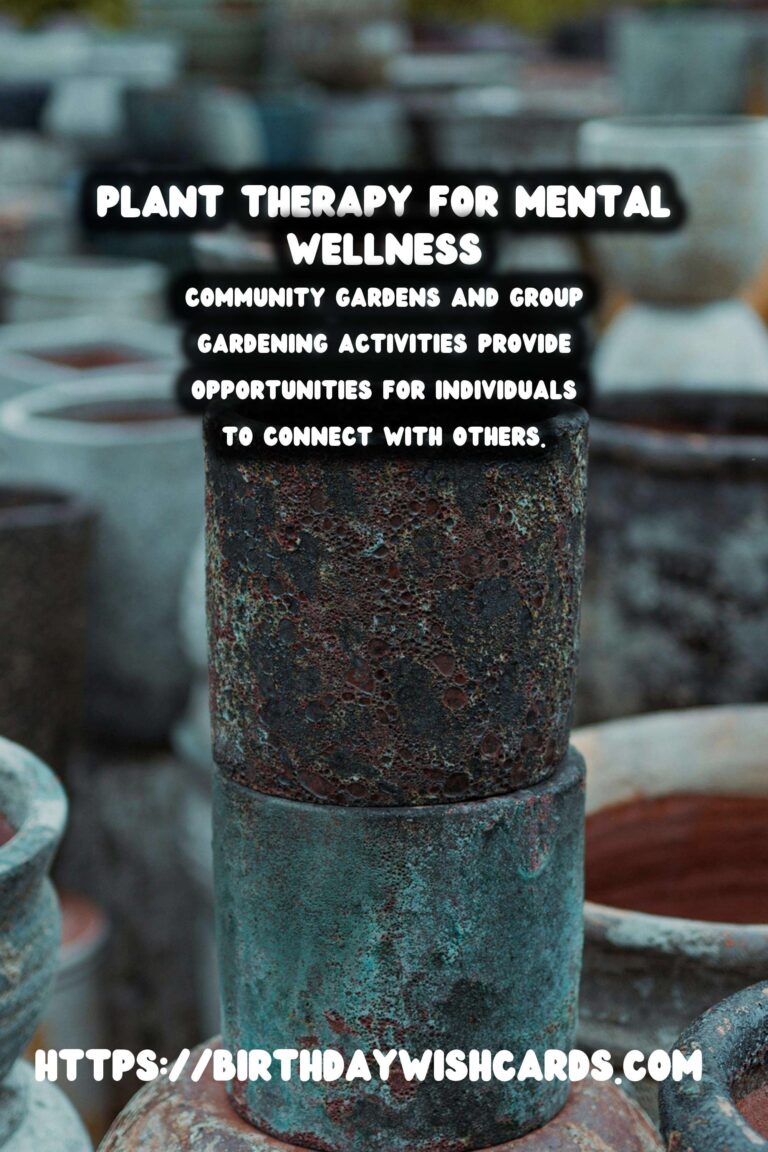
In recent years, the practice of plant therapy has gained significant attention for its positive impact on mental wellness. As we seek more natural and holistic approaches to improve our mental health, plants offer a unique and effective solution. This article explores the various benefits of plant therapy and how it can enhance mental wellness.
What is Plant Therapy?
Plant therapy, also known as horticultural therapy, involves the use of plants and gardening activities to improve mental and emotional well-being. This practice is rooted in the idea that interaction with plants can lead to therapeutic outcomes. Whether it’s tending to a garden, caring for indoor plants, or simply spending time in nature, plant therapy can provide numerous mental health benefits.
Reduces Stress and Anxiety
One of the most notable benefits of plant therapy is its ability to reduce stress and anxiety. Engaging with plants has been shown to lower cortisol levels, which are often linked to stress. The act of nurturing plants can be meditative, allowing individuals to focus their attention away from stressors and onto a calming activity. This mindful engagement can lead to a decrease in anxiety symptoms and promote a sense of calm.
Enhances Mood and Emotional Well-being
Plants have a remarkable ability to enhance mood and emotional well-being. The presence of greenery and flowers can boost positive feelings and decrease feelings of depression. Studies have shown that spending time in nature or having plants in your environment can lead to improved mood and increased happiness. This is partly due to the aesthetic pleasure plants provide, as well as the sense of accomplishment from caring for them.
Boosts Cognitive Function
Another significant benefit of plant therapy is its ability to boost cognitive function. Engaging with plants can improve concentration, memory, and attention span. The process of planning and maintaining a garden requires problem-solving skills and can enhance cognitive functioning. Moreover, the sensory experience of touching, smelling, and observing plants can stimulate brain activity and improve mental clarity.
Promotes Social Interaction
Plant therapy can also promote social interaction, which is essential for mental wellness. Community gardens and group gardening activities provide opportunities for individuals to connect with others who share similar interests. This social aspect can combat feelings of loneliness and isolation, fostering a sense of belonging and community. Sharing gardening experiences can lead to the formation of supportive networks, which are crucial for maintaining mental health.
Encourages Physical Activity
While plant therapy is primarily focused on mental wellness, it also encourages physical activity, which is beneficial for overall health. Gardening involves various physical tasks such as planting, watering, and weeding, which can improve physical fitness and mobility. Regular physical activity is known to release endorphins, which are natural mood enhancers, further contributing to mental well-being.
How to Incorporate Plant Therapy into Your Life
Incorporating plant therapy into your life can be as simple as adding a few houseplants to your home or starting a small garden. Begin with plants that are easy to care for, such as succulents or herbs. Spend time each day tending to your plants, observing their growth and changes. If possible, participate in community gardening projects or visit botanical gardens to immerse yourself in nature. Remember, the key is to engage with plants in a way that feels enjoyable and relaxing.
Conclusion
Plant therapy offers a natural and effective way to enhance mental wellness. By reducing stress, boosting mood, improving cognitive function, promoting social interaction, and encouraging physical activity, plant therapy can be a powerful tool in maintaining mental health. Whether through personal gardening or community involvement, the benefits of plant therapy are accessible to everyone. Embrace the power of plants and experience the positive impact they can have on your mental well-being.
Plant therapy involves the use of plants and gardening activities to improve mental and emotional well-being. Engaging with plants has been shown to lower cortisol levels, which are often linked to stress. The presence of greenery and flowers can boost positive feelings and decrease feelings of depression. Plant therapy can improve concentration, memory, and attention span. Community gardens and group gardening activities provide opportunities for individuals to connect with others. Gardening involves various physical tasks such as planting, watering, and weeding, which can improve physical fitness. 
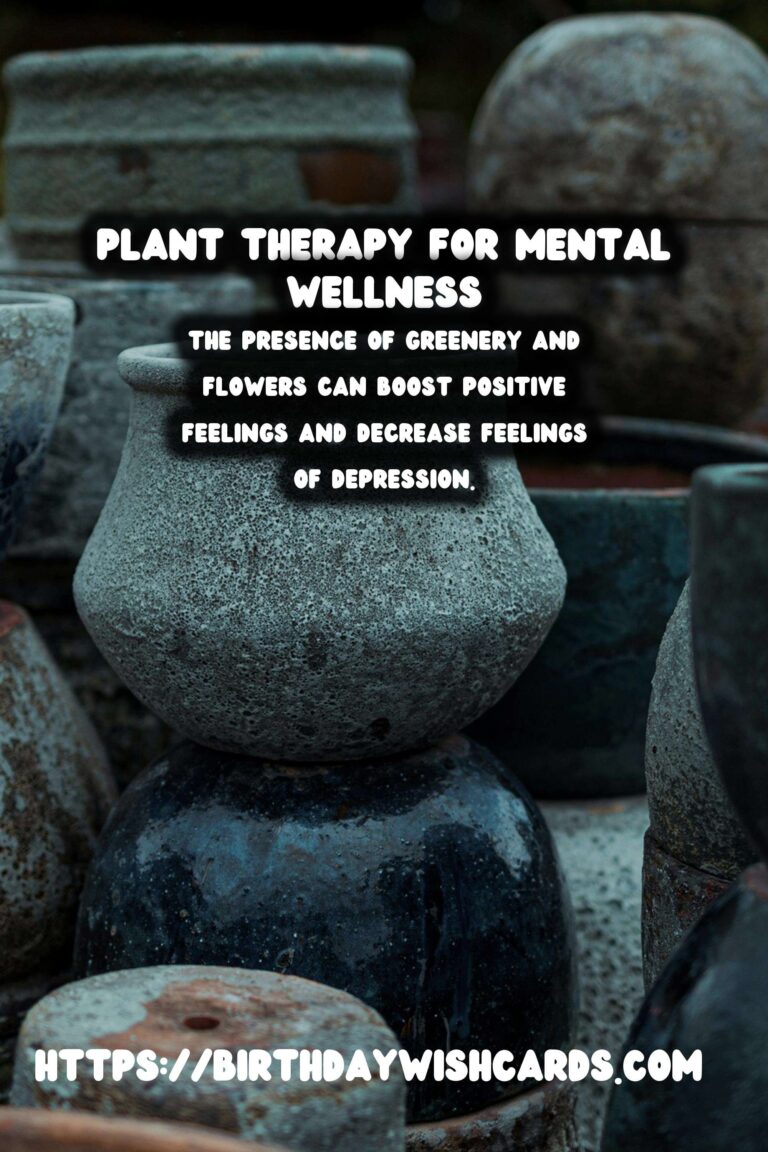
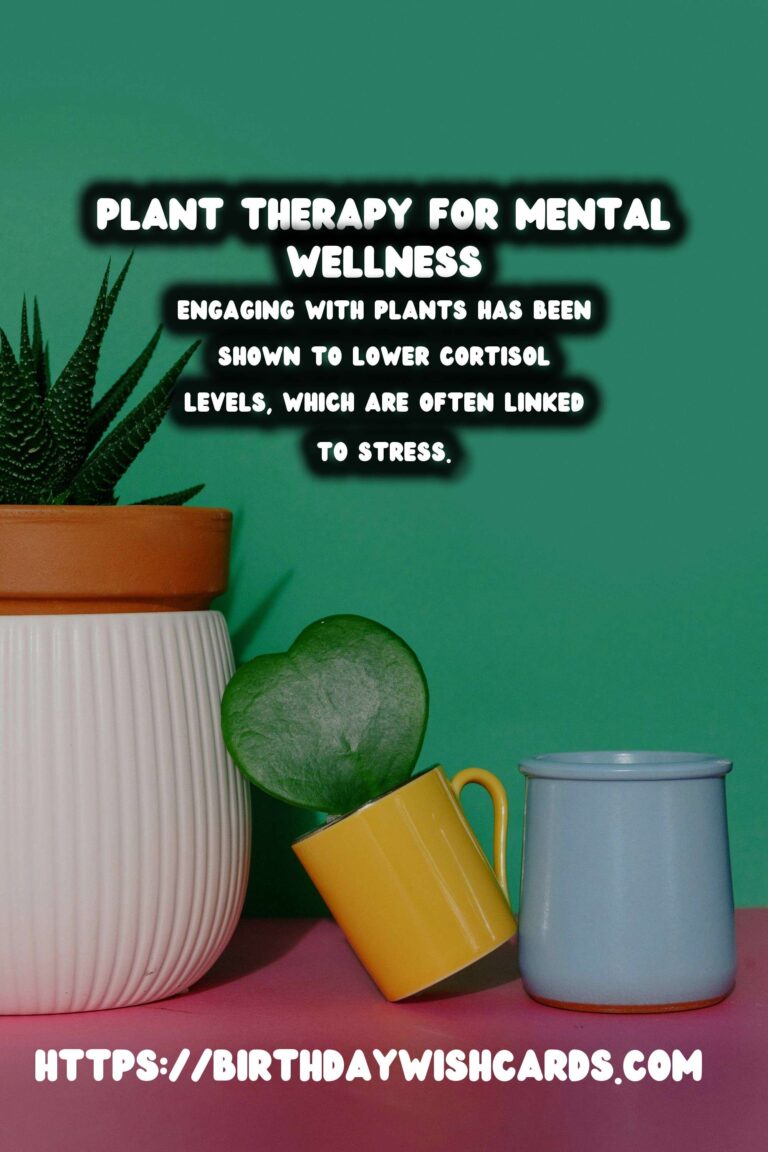
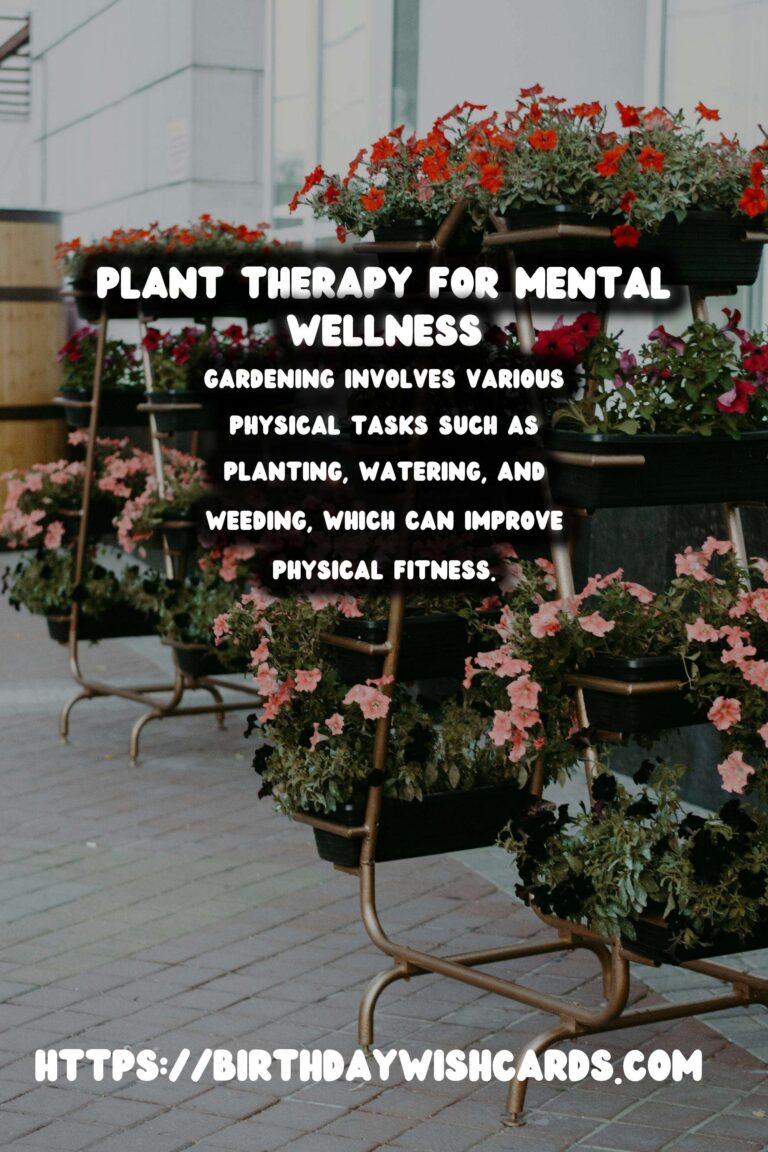
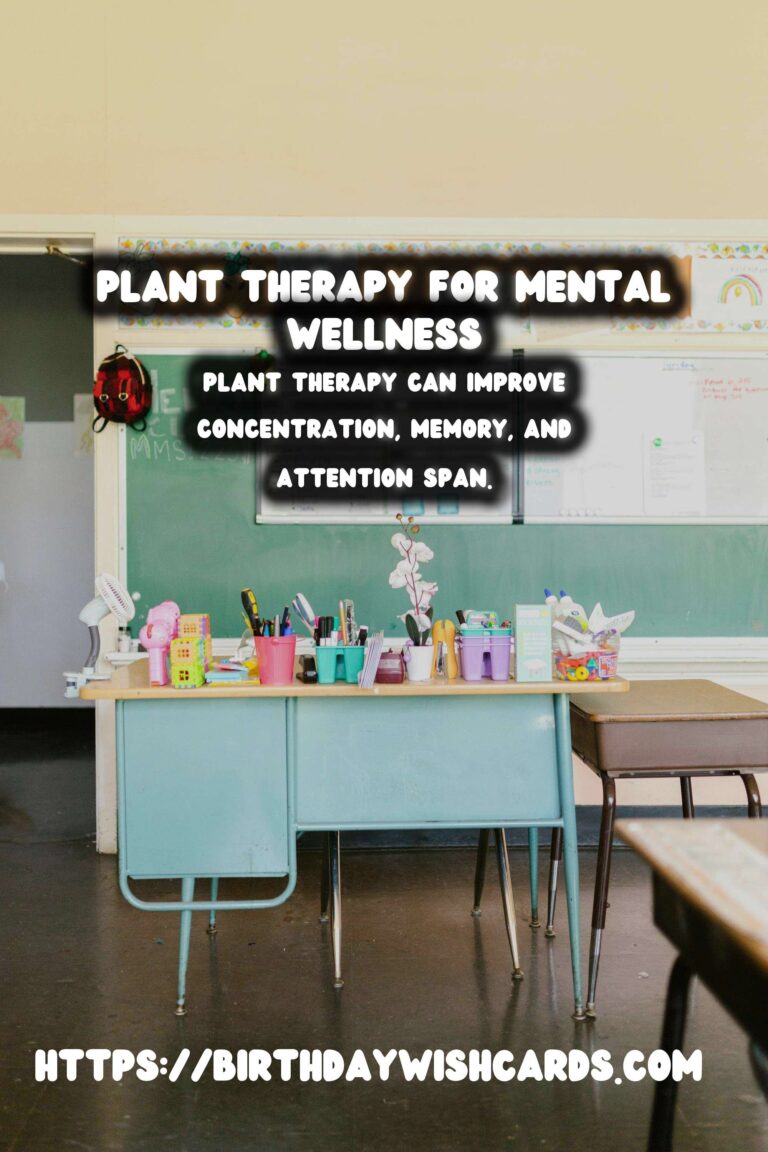
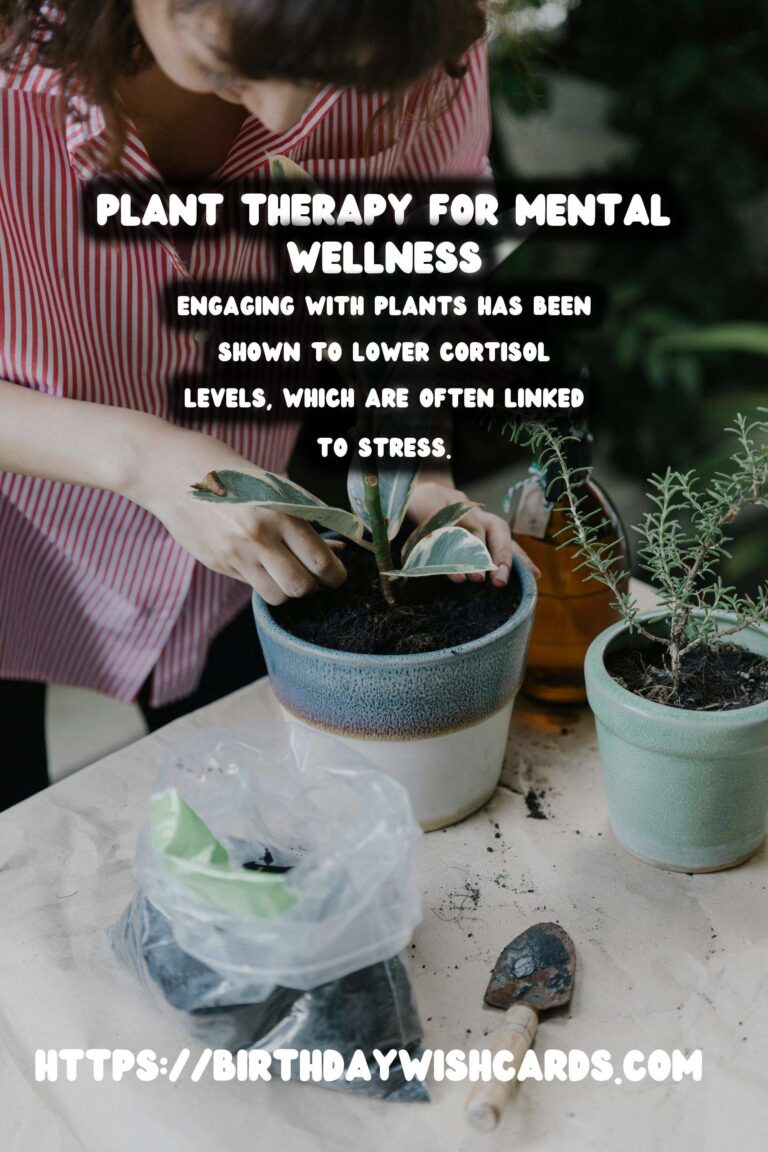
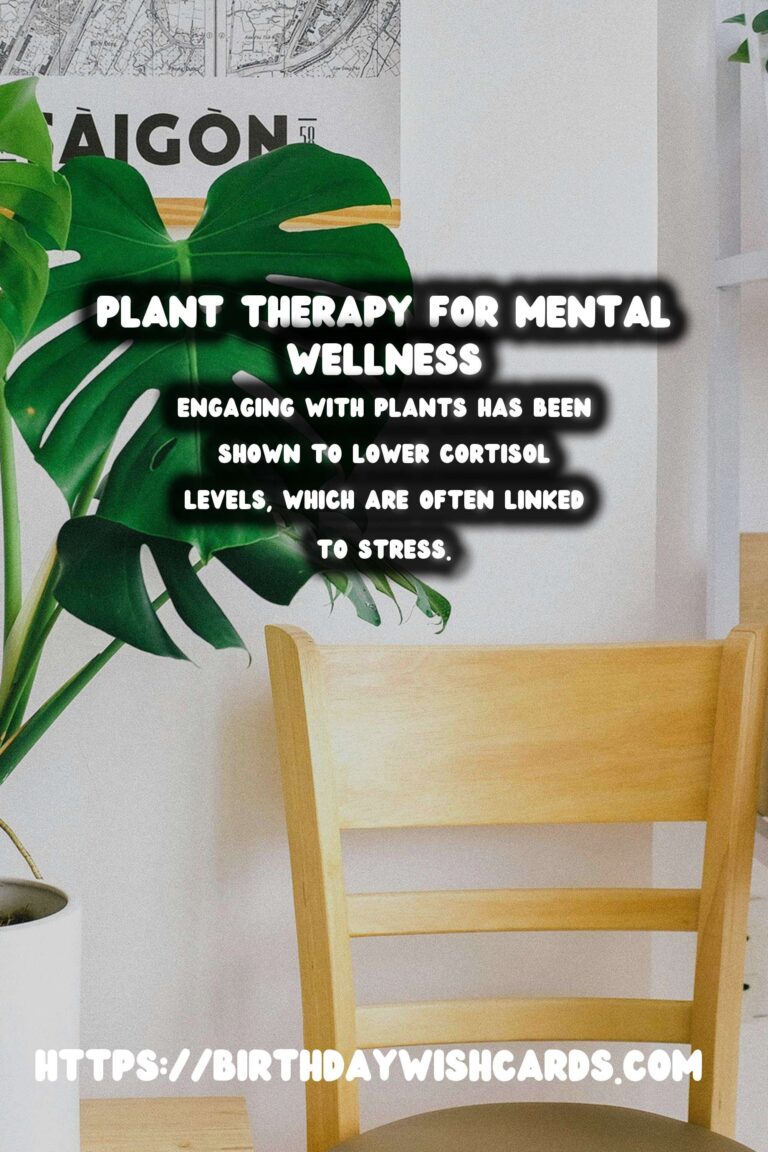
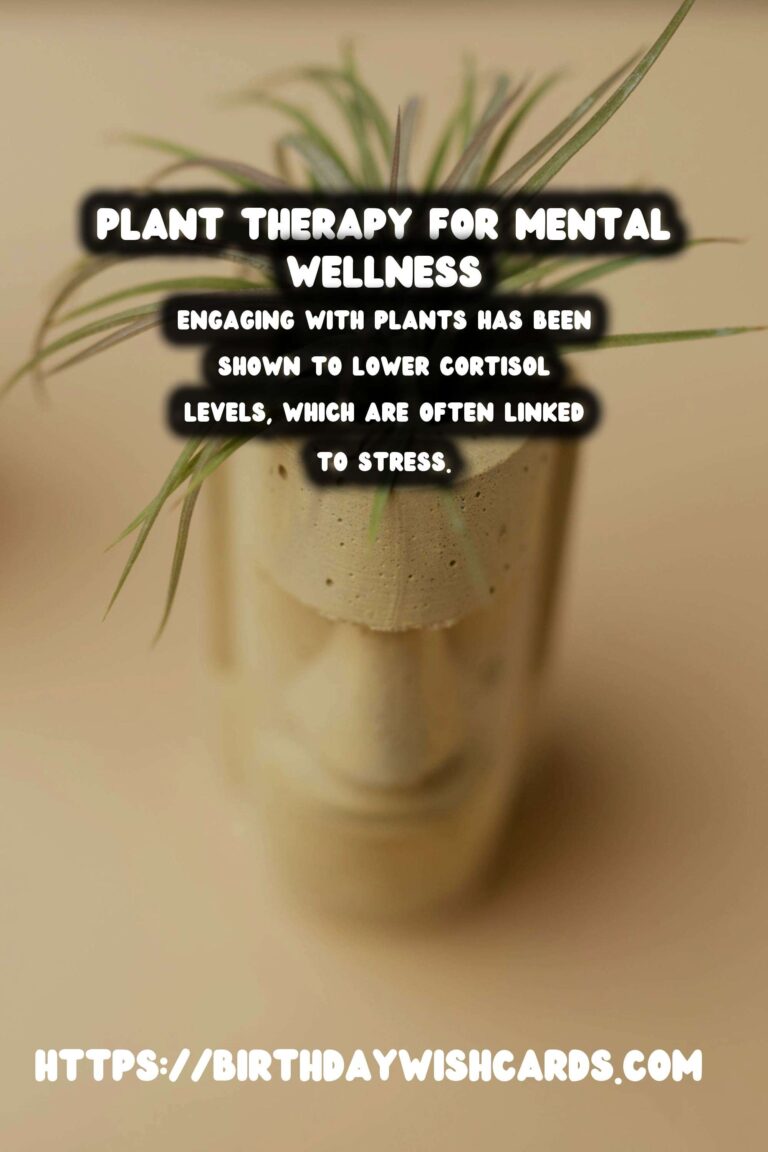
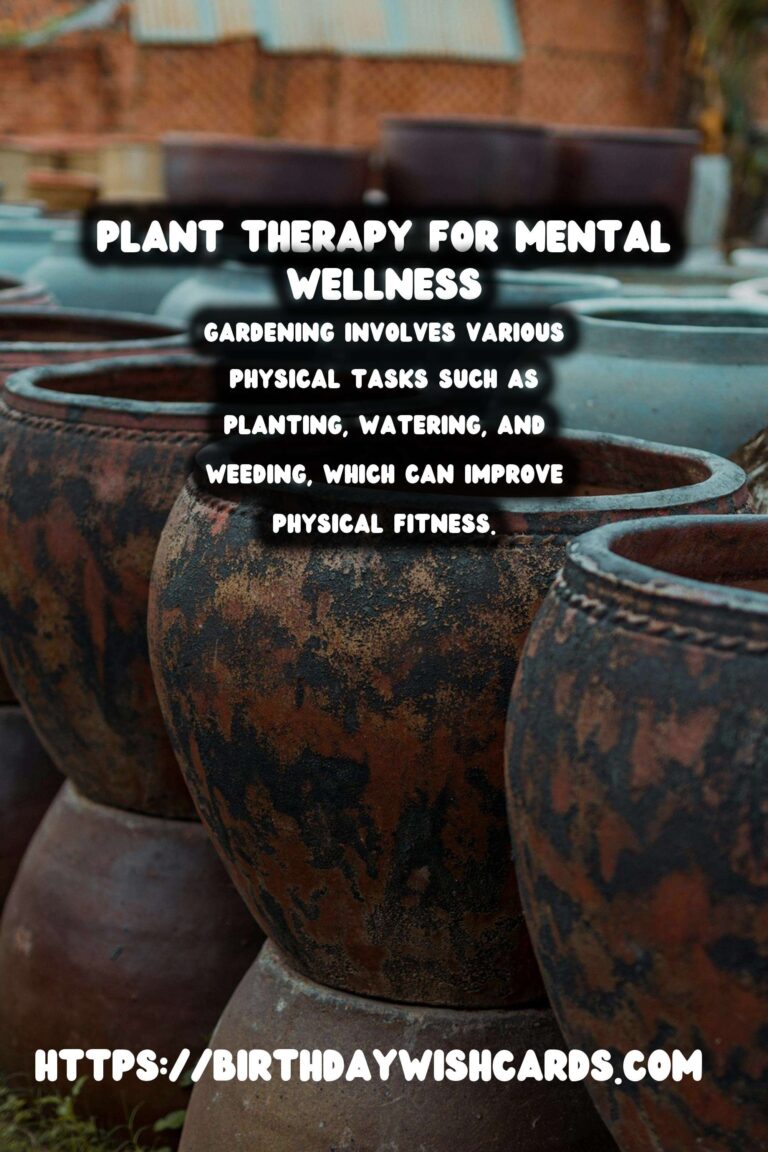

#PlantTherapy #MentalWellness #HorticulturalTherapy #StressRelief #GardeningForHealth




